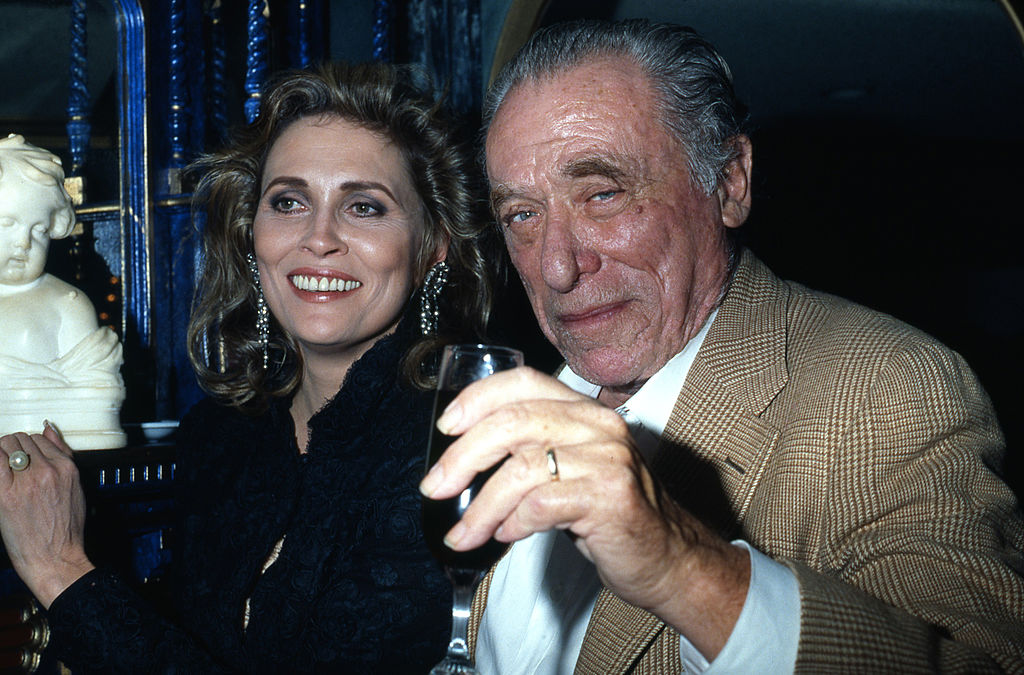Dr. Tom Zoellner is a tenured Professor of English at Chapman University, the author of numerous distinguished works of non-fiction, and an editor-at-large of the Los Angeles Review of Books. Dr. Zoellner has graciously consented to briefly withdraw his critical gaze from classic literature and cast an analytical eye for SPIN at pop and rock lyrics. What follows is a close reading.
Art and literature love a nice girl—and then proceed to give her a rough time. Shakespeare lifts up the angelic character, Hero, in Much Ado About Nothing only to have her slandered at her own wedding. The heroine of Samuel Richardson’s Pamela, Or Virtue Rewarded must endure years of indignities at the hands of a cad before she finally gets the dubious privilege of marrying him. The cheerful farm girl Roberta actually gets killed for her amiability in Theodore Dreiser’s An American Tragedy. Under the Botticelli portrait of idealized and approachable women in Western culture lies an implicit warning: you might have to pay for this.
Such is the dismal backbone of Hozier’s new smash, “Too Sweet,” in which the hard-living narrator rejects a woman for the crime of niceness. He suggests that she needs to ferment in badness before he’ll consider it.
You know, you’re bright as the morning, as soft as the rain
Pretty as a vine, as sweet as a grape
If you can sit in a barrel, maybe I’ll wait
It’s apparent this guy has not gotten past Dollar General greeting card levels of articulation (“soft as the rain”?) and is also at the nursery school level of romantic manipulation: do these fifty-five things and maybe you’ll have a shot at me. What he also communicates is that he wants her to drink more, and be more depressed, like him.
Don’t you just wanna wake up, dark as a lake?
Smelling like a bonfire, lost in a haze?
If you’re drunk on life, babe, I think it’s great
But while in this world
I think I’ll take my whiskey neat


Or it could be a matter of divergent sleep schedules. That’s it, that’s the reason!
You keep telling me to live right
To go to bed before the daylight
But then you wake up for the sunrise
But then it emerges that sexual availability is also a problem for him, and he uses insulting law enforcement comparisons to make his point.
You treat your mouth as if it’s Heaven’s gate
The rest of you like you’re the TSA
The careful reader might see a double meaning in this metaphor. If she’s the Transportation Security Administration, does that make him a criminal of sorts – even an airborne terrorist?
Here we must look to the tradition of the glamorous rake in 19th century Anglo-American literature. With his education at Trinity College in Dublin, and before that, a private Catholic school, Andrew John Hozier-Byrne might well have been exposed to the novels of Jane Austen and the shifty men who dwell within them. The narrator of “Too Sweet,” with all his profligacy and disrespect, bears a close resemblance to the famous flake John Willoughby in Sense and Sensibility.
To recap: Willoughby first appears as the hero who helps up the ‘nice girl’ character Marianne Dashwood after she falls down a hill in the rain and twists her ankle. She falls in love with him and they carry on for a while, but he withholds a marriage proposal. Then he disappears on a shady business trip to London and ignores her letters. Turns out, he had gotten somebody pregnant and then abandoned her in a welter of debt and shame. His route to solvency involved a plan to marry a woman with more money than Marianne, and one measurably less sweet.


Listen for the prefiguring of Hozier’s whiskey-sipping rogue in what he tells Marianne’s sister when she confronts him about his deceptions.
“I understand you,” he replied, with an expressive smile, and a voice perfectly calm; “yes, I am very drunk.— A pint of porter with my cold beef at Marlborough was enough to over-set me.”
A morning pint is not Olympian levels of consumption, to be sure, but it’s the kind of day-drinking that Hozier understands, as well as the evasion of hard questions. Some Austen scholars have questioned whether Willoughby was even faking inebriation, given his steady bearing. He may have been pulling the classic dick-move of acting conspicuously obnoxious to make the breakup seem easier for all parties.
As he himself puts it: “The event has proved, that I was a cunning fool, providing with great circumspection for a possible opportunity of making myself contemptible and wretched for ever.” With his gift for economy, Hozier puts the same thought thusly: “I aim low, I aim true and the ground’s where I go.”
If there may be any consolation here for the dumped, it is that classic Anglo-American literature usually deals a hard lesson to the wastrels. But the “too sweet” women pay the psychic bills, if not the literal ones. “I think Austen’s point,” said my colleague Dr. Lynda Hall, an Austen expert, “is that there are many Willoughbys out there and all of the Mariannes need to beware.”


Willoughby ends up married to a woman who bores him. The even worse scumbag of Pride and Prejudice, George Wickham, makes a strategic marriage to a 15-year-old that seems destined for unhappiness, and finds himself the target of disdain from nearly everyone. “He simpers, and smirks, and makes love to us all,” says a disapproving Mr. Bennet.
Such is the morality of 19th Century art. Whether this is also the outcome for Hozier’s simpering reprobate is up for the listener to decide. We’re left with a clue in his fading declamation, which sounds like the cry of a man falling down a well:
You’re too sweet for me
You’re too sweet for me

